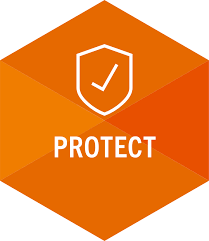
Protect Your Data: Best Practices for Ensuring Information Security
In today’s digital age, the protection of data has become more critical than ever. With cyber threats on the rise and data breaches making headlines, it is essential for individuals and organizations to prioritize information security. Implementing robust security measures can safeguard sensitive data and prevent unauthorized access. Here are some best practices to help you protect your valuable information:
Use Strong Passwords
Ensure that your passwords are complex and unique for each account. Avoid using easily guessable passwords such as “123456” or “password.” Consider using a password manager to securely store and manage your passwords.
Enable Two-Factor Authentication
Two-factor authentication adds an extra layer of security by requiring users to provide two forms of verification before accessing an account. This can help prevent unauthorized access even if your password is compromised.
Keep Software Updated
Regularly update your operating system, software applications, and antivirus programs to patch any vulnerabilities that cybercriminals may exploit. Software updates often include security patches that address known weaknesses.
Encrypt Sensitive Data
Encrypting sensitive data ensures that even if unauthorized users gain access to it, they will not be able to read or use the information without the decryption key. Use encryption tools to protect confidential files and communications.
Backup Your Data Regularly
Backup your important data regularly to an external hard drive or a secure cloud storage service. In the event of a ransomware attack or hardware failure, having backups ensures that you can recover your information without paying a ransom or losing valuable data.
Educate Yourself and Your Team
Educate yourself and your team members about cybersecurity best practices, phishing scams, social engineering tactics, and other common threats. Awareness training can help prevent human errors that may lead to security breaches.
By following these best practices and staying vigilant against potential threats, you can enhance the security of your data and minimize the risk of falling victim to cyberattacks. Remember, protecting your information is not just a one-time task but an ongoing commitment to safeguarding what matters most.
5 Essential Tips to Protect Your Online Security and Privacy
- Use strong and unique passwords for your online accounts.
- Enable two-factor authentication for an extra layer of security.
- Be cautious when sharing personal information online or with strangers.
- Keep your devices and software up to date with the latest security patches.
- Regularly back up your important data to prevent loss in case of cyber-attacks.
Use strong and unique passwords for your online accounts.
It is crucial to use strong and unique passwords for your online accounts to enhance information security. By creating complex passwords that are unique to each account, you can significantly reduce the risk of unauthorized access and potential data breaches. Avoiding common or easily guessable passwords is key to protecting your sensitive information from cyber threats. Consider utilizing a password manager to generate and securely store your passwords, ensuring that your online accounts remain secure and safeguarded against malicious actors.
Enable two-factor authentication for an extra layer of security.
Enabling two-factor authentication provides an additional layer of security to protect your accounts and sensitive information. By requiring users to provide a second form of verification beyond just a password, such as a unique code sent to a mobile device, two-factor authentication significantly reduces the risk of unauthorized access. This extra step adds a crucial barrier that can thwart cybercriminals even if they manage to obtain your password through various means. Embracing two-factor authentication is a proactive measure that enhances the overall security posture of your online accounts and helps safeguard your digital identity from potential threats.
Be cautious when sharing personal information online or with strangers.
It is crucial to exercise caution when sharing personal information online or with strangers. In today’s digital world, where data privacy is increasingly at risk, being mindful of the information you disclose can help protect you from potential threats such as identity theft, phishing scams, or cyberstalking. Always verify the legitimacy of websites and individuals before sharing sensitive details and consider the potential consequences of oversharing. By maintaining a healthy level of skepticism and discretion, you can safeguard your personal information and reduce the likelihood of falling victim to malicious actors seeking to exploit your data.
Keep your devices and software up to date with the latest security patches.
It is crucial to keep your devices and software up to date with the latest security patches to protect against potential vulnerabilities that cybercriminals may exploit. Regularly updating your operating system, applications, and security software ensures that known weaknesses are patched, reducing the risk of unauthorized access and data breaches. By staying current with security updates, you can bolster the defenses of your devices and enhance overall information security.
Regularly back up your important data to prevent loss in case of cyber-attacks.
Regularly backing up your important data is a crucial step in protecting your information from potential loss in the event of cyber-attacks. By creating backups of your data on external hard drives or secure cloud storage services, you ensure that even if your primary data is compromised or encrypted by ransomware, you have a safe copy that can be restored. This proactive measure not only provides peace of mind but also serves as a reliable insurance policy against data loss, allowing you to recover swiftly and resume normal operations without succumbing to the demands of cybercriminals.
